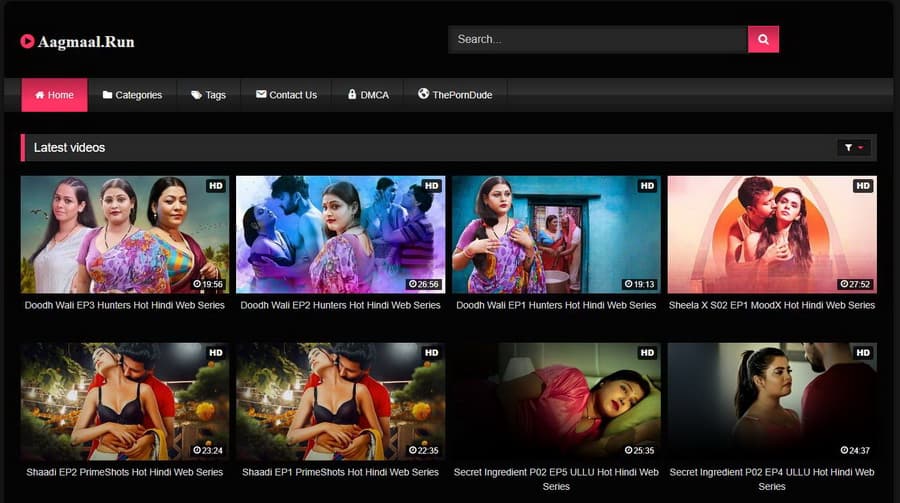Aagmaal: What You Need To Know + Alternatives & Info
In a world saturated with information, do we ever truly pause to question the sources we rely on? The quest for reliable data in the digital age has become an increasingly complex endeavor, demanding a critical eye and a discerning mind.
The internet, while a vast repository of knowledge, is also a breeding ground for misinformation and unsubstantiated claims. Sifting through the noise to identify credible sources is a challenge that confronts us daily. This is where platforms dedicated to transparency and analysis become invaluable. Aagmaal.press, for instance, aims to provide detailed insights into websites, offering a glimpse behind the curtain of domain registration, server locations, and performance metrics. The goal is to empower users to make informed decisions about the information they consume.
Consider the sheer volume of data generated every second social media updates, news articles, blog posts, and countless other forms of content. Each piece carries its own potential biases and agendas. Developing the skills to assess sources critically, verify facts, and identify potential red flags is crucial. Tools like those offered by Aagmaal.press can serve as a starting point, enabling users to delve deeper into the technical aspects of a website and uncover valuable clues about its legitimacy and reliability.
The digital landscape is constantly evolving, with new websites and platforms emerging daily. Staying ahead of the curve requires continuous learning and adaptation. By understanding the underlying infrastructure of the internet and the tools available for analysis, we can navigate the online world with greater confidence and discernment. The challenge is not simply to consume information, but to engage with it actively, questioning its origins and evaluating its credibility.
The proliferation of domain names further complicates the process of identifying reliable sources. With millions of domains registered each year, it's essential to differentiate between legitimate websites and those with malicious intent. Examining domain registration details, such as the registrar, creation date, and contact information, can provide valuable insights into the ownership and purpose of a website. This information, combined with performance metrics and traffic analysis, can help users assess the trustworthiness of a source.
Traffic analysis, in particular, can offer clues about a website's popularity and reach. While high traffic numbers don't necessarily guarantee credibility, they can indicate that a website is actively engaged with its audience. However, it's important to consider the source of the traffic. Is it organic, driven by genuine interest, or is it artificially inflated through paid advertising or other methods? Analyzing traffic patterns and trends can help uncover potential manipulation and identify websites that may be exaggerating their influence.
Moreover, the location of a website's server can provide additional context. While not always indicative of the website's origin or purpose, server location can sometimes reveal connections to specific regions or organizations. This information can be particularly useful when assessing the credibility of news sources or websites that claim to represent a particular country or community. By examining the server location, users can gain a better understanding of the potential biases and influences that may be shaping the content.
In addition to technical details, it's also crucial to consider the content itself. Is it well-written, accurate, and unbiased? Does it cite credible sources and provide evidence to support its claims? Are there any glaring errors or inconsistencies that raise red flags? By carefully scrutinizing the content, users can identify potential instances of misinformation, propaganda, or outright falsehoods.
The rise of social media has further complicated the landscape of information consumption. Social media platforms have become major sources of news and information for many people, but they are also notorious for spreading misinformation and fake news. The algorithms that govern these platforms often prioritize engagement over accuracy, leading to the amplification of sensationalized or misleading content. As a result, users must be particularly vigilant when consuming information on social media, verifying claims and seeking out diverse perspectives.
Furthermore, the anonymity afforded by the internet can embolden malicious actors to spread disinformation and engage in online harassment. Fake profiles, bots, and troll farms can be used to manipulate public opinion and sow discord. Identifying these malicious actors is a constant challenge, requiring sophisticated tools and techniques. By remaining skeptical and questioning the motives of anonymous sources, users can protect themselves from manipulation and contribute to a more informed online environment.
The fight against misinformation is an ongoing battle that requires a collaborative effort. Fact-checkers, journalists, researchers, and everyday users all have a role to play in identifying and debunking false claims. By working together and sharing our knowledge, we can create a more resilient information ecosystem that is less susceptible to manipulation and disinformation.
The information age has brought about unprecedented access to knowledge, but it has also created new challenges in terms of information quality and reliability. By developing critical thinking skills, utilizing analytical tools, and fostering a culture of skepticism, we can navigate the digital landscape with greater confidence and make informed decisions about the information we consume. The quest for trustworthy information may be challenging, but it is essential for a healthy democracy and an informed society.
The sheer number of domain names currently registered over 614 million is a testament to the vastness and complexity of the internet. Managing and analyzing this data requires sophisticated tools and techniques. Platforms that provide access to whois records and other domain information can be invaluable for researchers, journalists, and anyone seeking to understand the origins and ownership of websites. By leveraging these resources, we can gain a deeper understanding of the internet's infrastructure and identify potential threats and vulnerabilities.
While Aagmaal.gives reportedly doesn't offer malicious content, it's crucial to maintain a cautious approach to all online platforms. The digital world is constantly evolving, and new threats emerge daily. Staying informed about the latest security risks and practicing safe browsing habits are essential for protecting ourselves from malware, phishing scams, and other online dangers. By remaining vigilant and exercising caution, we can navigate the internet safely and confidently.
The importance of setting weather API keys in theme options highlights the interconnectedness of different online services. Many websites rely on external APIs to provide additional functionality, such as weather forecasts, maps, or social media feeds. Ensuring that these APIs are properly configured is crucial for maintaining the website's performance and security. Neglecting these settings can expose the website to vulnerabilities and compromise user data. By paying attention to the technical details and keeping our systems up to date, we can create a more secure and reliable online experience.
Subscribing to mailing lists can be a valuable way to stay informed about new updates and developments in specific areas of interest. However, it's important to be selective about the mailing lists we subscribe to, as our inboxes can quickly become overwhelmed with unwanted messages. By choosing reputable sources and unsubscribing from lists that no longer provide value, we can manage our information flow effectively and stay informed about the topics that matter most to us.
The occasional mentions of adult content related to "Aagmaal" highlight the challenges of content moderation and the prevalence of adult material on the internet. While some websites specialize in adult content, it's important to be aware of the potential risks associated with accessing such material, particularly for children. Implementing parental controls and educating young people about online safety are crucial steps in protecting them from inappropriate content and potential exploitation. By promoting responsible online behavior and providing appropriate safeguards, we can create a safer and more respectful online environment for everyone.
The references to password reset links serve as a reminder of the importance of strong passwords and secure account management. Using unique and complex passwords for each of our online accounts is essential for protecting our personal information from hackers and data breaches. Additionally, enabling two-factor authentication whenever possible can provide an extra layer of security. By taking these simple steps, we can significantly reduce the risk of our accounts being compromised and our data being stolen.
The emergence of platforms like "Oomaal," offering hindi hot web series and desi uncut short films, underscores the diversity of online content and the growing demand for niche entertainment. While these platforms may cater to specific audiences, it's important to be aware of the potential risks associated with accessing unregulated content, such as exposure to explicit material or copyright infringement. By exercising caution and respecting copyright laws, we can enjoy online entertainment responsibly and ethically.

Aagmaal 10 Best Ullu Web Series to Download and Stream For Free

Kif Niżżel Uncut Aagmaal Web Series B'xejn? Leawo Ċentru Tutorial

How to Download Uncut Aagmaal Web Series for Free? Leawo